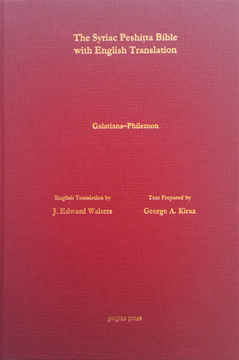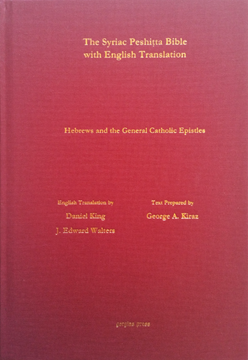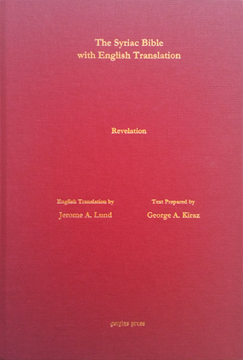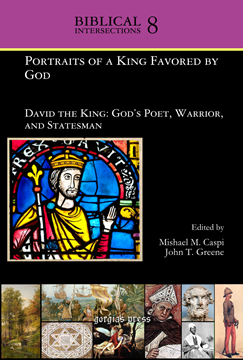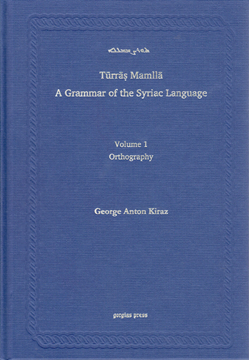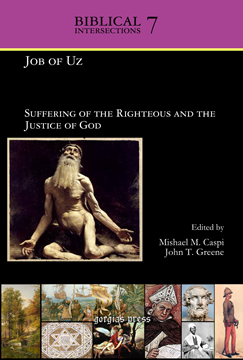Galatians to Philemon According to the Syriac Peshitta Version with English Translation
English Translation by J. Edward Walters; Text Prepared by George Anton Kiraz
Series: Surath Kthob 34
ISBN: 978-1-61143-893-2
This volume is part of a series of English translations of the Syriac Peshitta along with the Syriac text carried out by an international team of scholars.
$150.00 (USD) $90.00 (USD)
Hebrews & General Epistles According to the Syriac Peshitta Version with English Translation
Series: Surath Kthob 32
ISBN: 978-1-4632-0556-0
This volume is part of a series of English translations of the Syriac Peshi?ta along with the Syriac text carried out by an international team of scholars.
$150.00 (USD) $90.00 (USD)
Revelation According to the Syriac Version with English Translation
English Translation by Jerome Alan Lund; Text Prepared by George Anton Kiraz
Series: Surath Kthob 35
ISBN: 978-1-4632-0413-6
This volume is part of a series of English translations of the Syriac Peshitta along with the Syriac text carried out by an international team of scholars. Although the book of Revelation is not part of the Peshitta, it was translated into Syriac at a later date and added to the Harqlean version.
$150.00 (USD) $90.00 (USD)
Portraits of a King Favored by God
David the King: God's Poet, Warrior, and Statesman
Edited by Mishael M. Caspi & John T. Greene
Series: Biblical Intersections 8
ISBN: 978-1-61143-405-7
David the king, when studied against the backdrop of existing material cultural remains from the ancient Middle East, scarcely seems to have been there. Excavations in Jerusalem have turned up nothing concrete about his existence. The literature concerning him is fraught with problems and generally takes on a legendary-mythological character. Even the meaning of his name is unclear. If he is mentioned at all by his contemporary monarchs against whom he would have fought it is only obliquely or only intimated by omissions or partial spellings in context. This volume attempts to advance scholarship addressing these concerns.
$150.00 (USD) $90.00 (USD)
Syriac Orthography (A Grammar of the Syriac Language, Volume 1)
ISBN: 978-1-4632-0183-8
This volume, the first in a comprehensive grammar of the Syriac language, is a thematic presentation of orthography in the Syriac grammatical tradition, bringing the study of Syriac writing closer to modern linguistic accounts of writing systems.
$75.00 (USD)
Job of Uz
Suffering of the Righteous and the Justice of God
Edited by Mishael M. Caspi & John T. Greene
Series: Biblical Intersections 7
ISBN: 978-1-61143-420-0
Job finds himself in a situation similar to one experienced by everyone at some point in his or her life. He wants answers to questions concerning what has happened to him, since he lived his life according to the traditional wisdom and rules of conduct, asking what has gone wrong and why. The Book of Job raises fundamental questions of both the actions and expectations of humans and deities, and asks whether a clear understanding can be reached between them. The contributing essays to this anthology help advance and sharpen both the questions and the responses to that question.
$140.00 (USD) $84.00 (USD)
